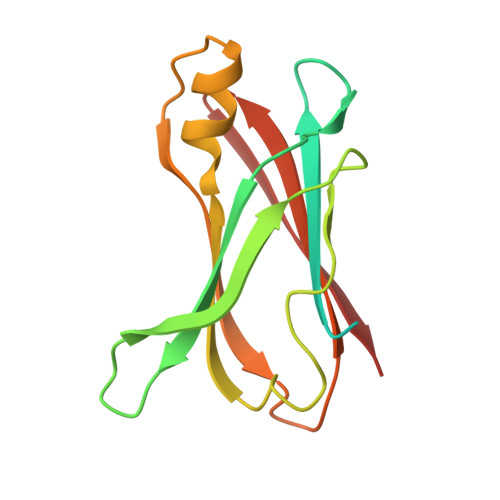Repositioning of the Anthelmintic Drugs Bithionol and Triclabendazole as Transthyretin Amyloidogenesis Inhibitors.
Yokoyama, T., Kashihara, M., Mizuguchi, M.(2021) J Med Chem 64: 14344-14357
- PubMed: 34547896
- DOI: https://doi.org/10.1021/acs.jmedchem.1c00823
- Primary Citation of Related Structures:
7ERH, 7ERI, 7ERJ, 7ERK - PubMed Abstract:
Transthyretin (TTR) is a causative protein of TTR amyloidosis (ATTR amyloidosis), a general term for diseases characterized by deposition of TTR amyloid fibrils in specific organs. ATTR amyloidosis can be ameliorated by stabilization of the TTR tetramer through the binding of small molecules. Here, we show that the clinical anthelmintic drugs bithionol ( 42 ) and triclabendazole ( 43 ) potently inhibit aggregation of the amyloidogenic variant V30M-TTR. A competitive binding assay using a fluorescence probe showed that the binding affinity of 42 with V30M-TTR was significantly higher than that of the first-in-class drug tafamidis ( 1 ), and the binding affinity of 43 was similar to that of 1 . The crystallographic and thermodynamic analysis revealed that 42 efficiently occupied the halogen-binding grooves of TTR, resulting in the favorable binding entropy. Multifaceted in vitro studies of anthelmintic drugs have the potential to reposition these drugs as ATTR amyloidosis inhibitors.
Organizational Affiliation:
Faculty of Pharmaceutical Sciences, University of Toyama, 2630 Sugitani, Toyama 930-0914, Japan.
















